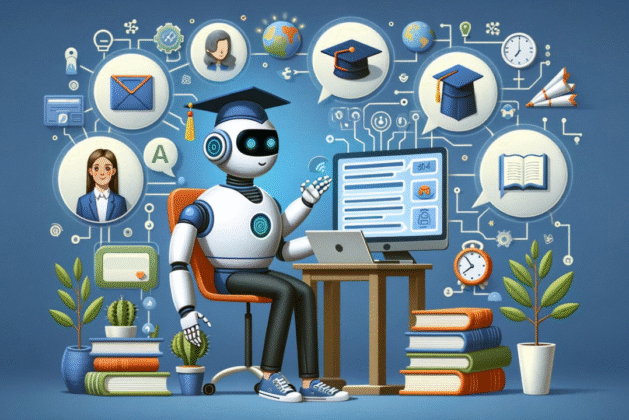In today’s fast-paced educational environment, students seek immediate answers and personalized help more than ever. Traditional support systems can sometimes be slow or inaccessible, especially when students study remotely or outside of school hours. Enter chatbots—AI-powered virtual assistants that provide instant support, guide learning, and streamline communication between students and educators. This article explores how they are revolutionizing student support by offering on-demand assistance, enhancing engagement, and shaping the future of education.
Table of Contents
Introduction
Imagine studying late at night, struggling with a tricky math problem, or needing quick feedback on an assignment—but there’s no teacher or tutor available. This is a common scenario for many students worldwide. Thanks to advancements in artificial intelligence, they are stepping in to fill this gap. These digital helpers offer real-time responses, personalized guidance, and round-the-clock support, changing how students learn and interact with educational resources.
What Are Educational Chatbots?
Educational chatbots are AI-powered software programs designed to interact with students through text or voice, simulating human conversation. They can answer questions, provide explanations, offer study resources, and even help with administrative tasks like scheduling or reminders. Unlike static resources like textbooks or videos, they can adapt their responses based on the user’s input, making the learning experience more interactive and tailored.
Immediate, 24/7 Assistance
One of the biggest advantages of chatbots is their ability to provide instant help whenever a student needs it. Whether it’s late at night, during a weekend, or when teachers are unavailable, they remain accessible. This constant availability ensures students don’t lose momentum or motivation, reducing frustration caused by waiting for answers. Immediate feedback is crucial for learning, and chatbots deliver it effectively.
Personalized Learning Experiences
No two students learn the same way or at the same pace. They can analyze a student’s previous interactions, identify knowledge gaps, and customize their responses accordingly. This personalization helps students focus on areas they find challenging and advance confidently. Some chatbots even use gamification techniques to make learning fun, increasing engagement and retention.
Supporting Diverse Learning Needs
They are also valuable tools for supporting students with diverse needs. For instance, students with disabilities or language barriers can benefit from chatbots that offer speech-to-text, multilingual support, or simplified explanations. This inclusivity helps bridge gaps in education and promotes equal learning opportunities.
Reducing Administrative Burdens on Educators
Besides direct student support, chatbots assist educators by handling routine administrative tasks such as answering FAQs, tracking attendance, or scheduling appointments. This automation frees up teachers’ time, allowing them to focus more on teaching and providing meaningful guidance. It also ensures that no student query goes unanswered, even in large classes.
Challenges and Considerations
While chatbots offer exciting possibilities, it’s important to acknowledge their limitations. AI chatbots can sometimes misinterpret complex questions or provide inaccurate responses if not properly programmed or updated. Privacy concerns also arise when handling student data. Therefore, schools and developers must ensure chatbots are carefully designed, regularly monitored, and compliant with data protection regulations.
The Future of Chatbots in Education
The future promises even more advanced chatbot capabilities, integrating with virtual reality, augmented reality, and learning analytics. This integration will offer immersive learning experiences and deeper insights into student progress. As AI continues to evolve, chatbots will become even smarter, proactive, and empathetic, transforming on-demand student support into an essential educational pillar.
Conclusion
They are no longer just futuristic concepts; they are active players in reshaping education today. By providing instant, personalized, and accessible support, they empower students to take control of their learning journey. While challenges exist, the potential benefits far outweigh them, marking chatbots as a key innovation in the future of on-demand student support. As educational institutions embrace these technologies, students worldwide stand to gain a more responsive, inclusive, and engaging learning experience.
Read More: Using Psychometric Tests in Career Counselling: Are They Effective?




